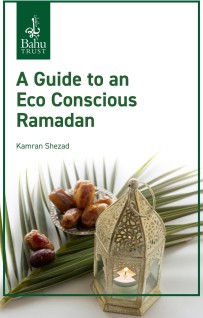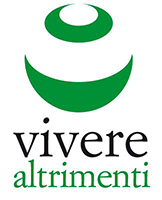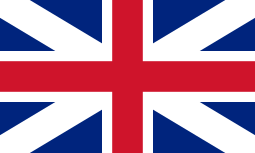Care for Creation and the urgent need of an eco-conscious Ramadan

Turkish Professor İbrahim Özdemir is a prominent Muslim environmentalist. He has been involved in the drafting of Islamic Declaration on Global Climate Change and in Al Mizan Project within the UN Environment Program.
He has recently authored the excellent book Care for Creation; An Islamic Perspective where he explains, in detail, how Islam is a “genetically environmentalist religion”.
In his book (115 pages) there are almost eighty quotations from The Holy Qu’ran, legitimizing the affirmation the green is the colour of Islam even because of its undisputable ecological vocation.
This is really crucial for our suffering planet, because Islam will be soon the first religion in the world in terms of followers and, then, whatever happen in the Islamic world is relevant worldwide.
Care of Creation; An Islamic Perspective — available in the market both in paper and digital format — is a book every good Muslim should read.
I have recently interviewed the author who, commenting on the discussions and the commitments made at COP28, praised, despite the inevitable imperfections, a growing acknowledgment of the urgency of our environmental crisis.
Muslims are particularly engaged in environmentalist activities in the US, in the UK and in Europe but encouraging signs of progress in terms of environmental awareness are even visible in the most populous Muslim country: Indonesia as well as in Turkey, Morocco and the UAE.
We must go ahead: there is a lot of work ahead of us. The month of Ramadan is starting this night. In 2023 the initiative of a plastic free Ramadan, promoted by the Muslim Council of Britain, has recorded a good success worldwide, involving mosques mostly in the UK, the US and Canada.
Preparing for Ramadan 2024, I invite everybody to download the Guide to an Eco-Conscious Ramadan, produced by Kamran Shezad, an active member of IFEES.
Quoting the introduction:
«Fasting is an act of worship, as well as a way to learn patience and to break away from bad habits.
However, in this era of modernity, the focus seems to have shifted from the vast benefits of fasting during the blessed month to a more materialistic outlook, for example, what to buy, where to eat and how much to eat.
In Ramadan, we tend to become more extravagant when it comes to food and the use of resources.
Wastage levels can escalate due to a variety of factors ranging from a commercialisation of the holy month to the generosity of hosts who produce too much food for events. We find that we are using more water than usual for wudu as we’re feeling more spiritual, and we tend to use our cars more for regular shopping trips.
Allah Almighty has gifted us the earth as a place to live, He has created each living organism for a precise purpose and created every natural process for a reason.
When you are given a gift, it is not something which is discarded, rather it is treasured and you appreciate the giver of the gift».
In the Guide there is plenty of advices to enjoy the Holy Month in a sustainable way. it is important to mention some basic Ramadan Food Tips:
■ Don’t over-purchase – Ramadan is not about how much food you can eat at Iftar, keep your
meals simple, eat modestly.
■ Be mindful of marketing and advertising techniques aimed at influencing you to buy more than you need. Commercialism in the run up to Ramadan is now a regular occurrence similar to Christmas, Easter and other religious festivals.
■ Our iftars do not have to include meat! Take the opportunity of Ramadan to try new vegetarian dishes – meat is very high on the food chain and the more of it we eat, the more damage we do to the environment.
■ The Prophet’s صلى الله عليه وسلم diet consisted mainly of grains, dates, water, milk, honey, fruit and vegetables, while meat was not a daily part of his diet.
■ Try to eat local – food which is grown locally is generally more environmentally friendly and at the same time you’re supporting local businesses which is even better!
■ Keep in mind the hadith of filling 1/3 of your stomach with food, 1/3 with water, and leaving 1/3 empty (Tirmidhi)
■ Use leftover food from iftar for Suhoor, and left over food from Suhoor for Iftar the following day.
To reduce plastic in our Iftar gatherings is also very important:
■ Make an assessment of the plastics that would be used when holding an iftar. At this early stage you might be really surprised just how much plastic is involved.
■ Begin thinking of the most obvious uses, the plastics you might use for the meal itself e.g. plates, drinking vessels and cutlery. You could then think of plastics used in the less obvious aspects of the meal e.g. the packaging of the food and/or its ingredients.
■ The primary sources of plastics are the most important to your message of reducing waste at Iftar, as these are the visible differences people can see. This is your way to demonstrate that a plastic free iftar is possible and that one can break one’s fast with others in a way that follows the example of the Prophet (PBUH).
■ Think of alternatives to the plastics currently used. The idea is to try find alternatives that will eliminate the use of plastics all together. When attending an Iftar event or even attending the mosque, take your own water bottles so that plastic ones are not distributed.
■ Reusable cutlery is a great way for everyone to get involved and help to clean up after. It gives an opportunity to create a community friendly environment.
■ Keep a note of ways in which you have avoided plastic use in your iftar so that you can share good practice with others. Keep a record of the event so that you can share it and encourage others to do the same.
■ Remember plastic is usually used for convenience. However, this convenience comes at a cost to the planet Allah created for us to take care of and live on. In Islam effort is rewarded and valued.
I think during Ramadan 2024 we should consolidate the good performance of the previous year, to be ready to maintain the good behaviour and good practices even after the Holy Month.
Are you all ready for an eco-conscious Ramadan?
Link to download the Guide: https://viverealtrimenti.com/en/wp-content/uploads/2022/06/Eco-Guide-to-Ramadan.pdf

 English
English Italian
Italian